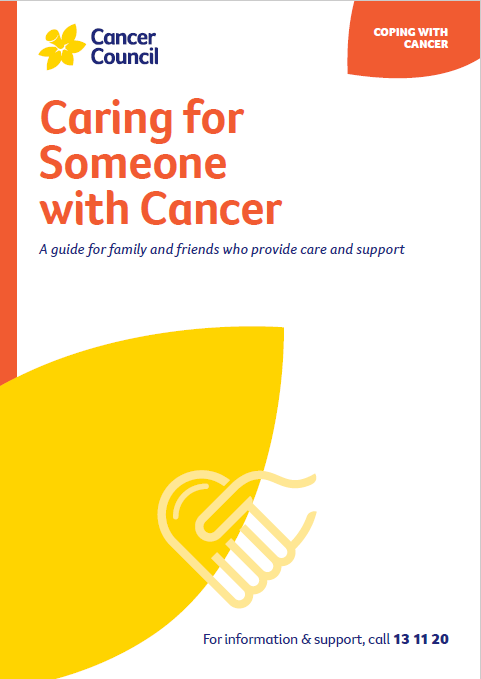- Home
- About Cancer
- Supporting someone with cancer
- Caring for someone with cancer
- Caring for yourself
- When your caring role ends
When your caring role ends
Many people find it challenging when the need for care finishes. You could feel a bit lost or no longer needed. If the person has recovered, they may appear to have forgotten how much you did. This can be hurtful, but they probably don’t realise how you’re feeling.
Emotional challenges
How the person may feel – You may be surprised that the person who had cancer does not seem happy or relieved that they have been given good news. The end of treatment can be a difficult time emotionally, and cancer survivors sometimes experience depression as they adjust to the “new normal”. It is important to communicate openly about how you are both feeling.
Adapting to post-care life
Take the time you need – You may expect that you’ll slip back into day-to-day life as it was before you took on the caring role, but this may not be straightforward. You might feel you are still waiting for the next setback. Your life may also have changed. Going back to work or resuming other responsibilities can be overwhelming. Do things at your own pace and give yourself time to adjust. You might be able to return to work part time or take on fewer responsibilities.
Share your feelings – Talking about your feelings with someone you trust can help. Studies show that caring often brings changes in life philosophy and relationships, and personal growth. Many people find these changes rewarding, but it’s not always positive. You may need time to reflect on what has happened and what it has meant to you.
If the person you are caring for has been diagnosed with advanced cancer, the caring role may be different. See Caring for someone with advanced cancer for more on this.
→ READ MORE: How relationships can change
Podcast: Cancer Affects the Carer Too
Listen to more episodes from our podcast for people affected by cancer
More resources
Dr Alison White, Palliative Medicine Specialist, Royal Perth Hospital, WA; Tracey Bilson, Consumer; Louise Dillon, Consumer; Louise Durham, Nurse Practitioner, Palliative Care Outpatients, Princess Alexandra Hospital, QLD; Katrina Elias, Carers Program, South Western Sydney Local Health District, NSW Health, NSW; Jessica Elliott, Social Worker, Youth Cancer Services, Crown Princess Mary Cancer Centre, Westmead Hospital, NSW; Brendan Myhill, Social Worker and Bereavement Research Officer, Concord Repatriation General Hospital, NSW; Penny Neller, Project Coordinator, National Palliative Care Projects, Australian Centre for Health Law Research, Queensland University of Technology, QLD; Olivia Palac, Acting Assistant Director, Occupational Therapy, Gold Coast University Hospital, QLD; Nicole Rampton, Advanced Occupational Therapist, Cancer Services, Gold Coast University Hospital, QLD; Shirley Roberts, Nurse Consultant, Medical Oncology, Northern Adelaide Cancer Centre, SA; Dr Elysia Thornton-Benko, Specialist General Practitioner, and UNSW Research Fellow, NSW; Kathleen Wilkins, Consumer; Helen Zahra, Carers Program, South Western Sydney Local Health District, NSW Health, NSW.
View the Cancer Council NSW editorial policy.
View all publications or call 13 11 20 for free printed copies.

